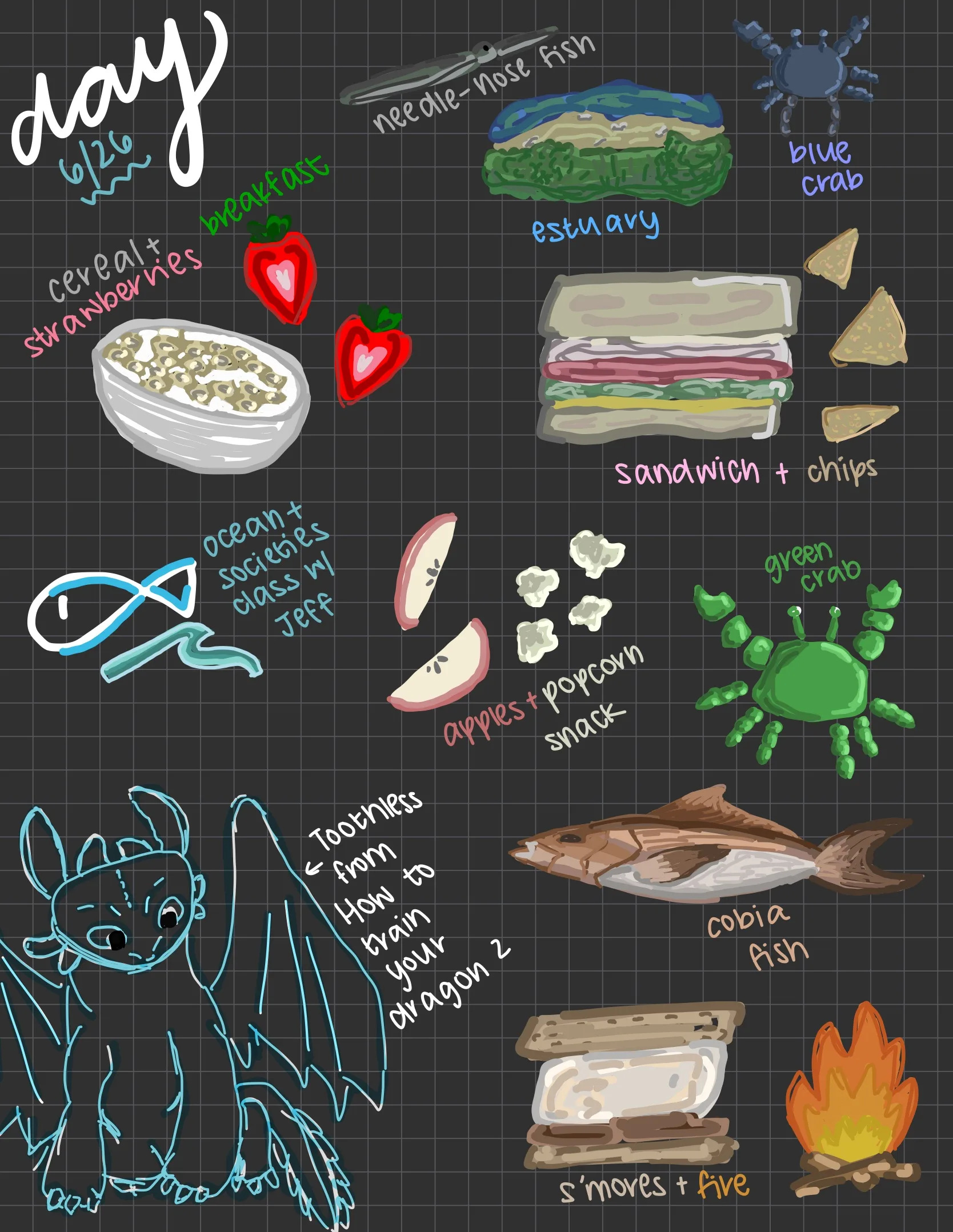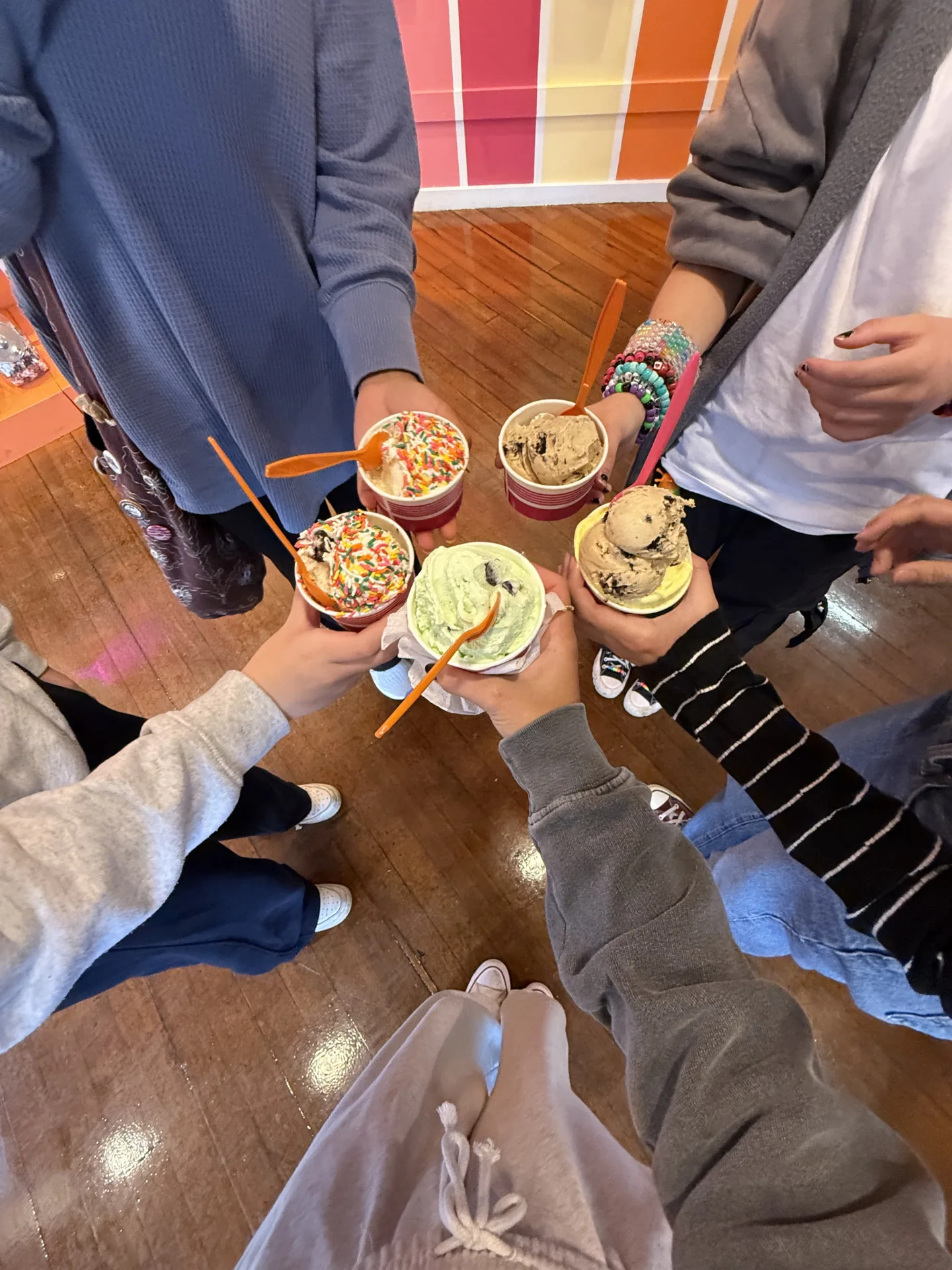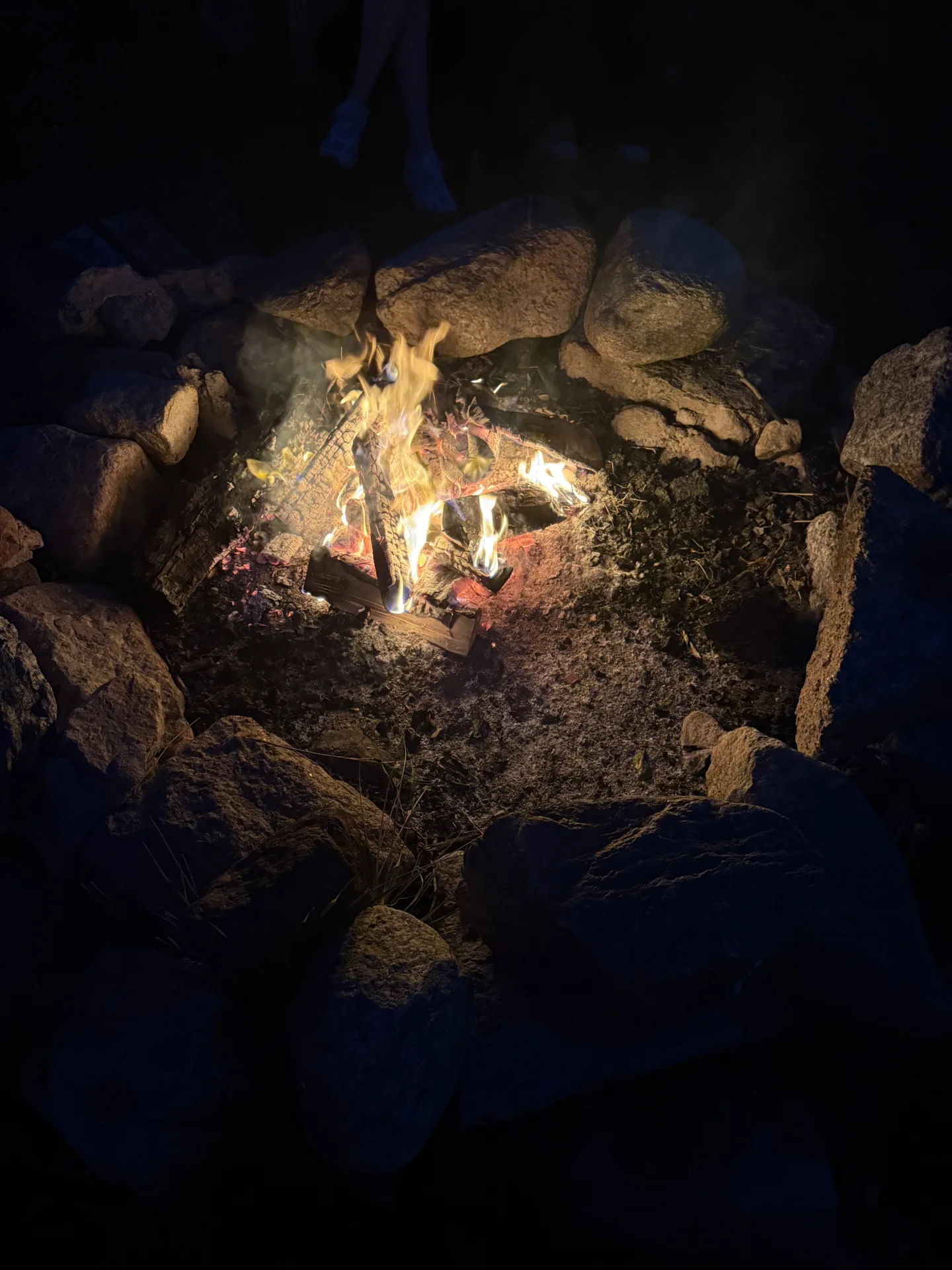Programs Blog
Exploring Estuaries, Ecosystems, and Evening Campfires

Name: Harper F.
From: Boca Raton, FL
Date: 26 June 2025
Location: Waquoit Bay
Dear Blog Readers,
Hello! I’m Harper and welcome to today’s blog! This is my attempt at writing a last minute blog (unfortunately today’s original writer is feeling under the weather so you’re stuck with me instead 🙂 We started off our day with a trip to Waquoit Bay Estuary, where Jane met with us and taught us all about the positive effects of estuaries. An estuary is a coastal water body consisting of brackish water (a mix of freshwater and saltwater) that is the perfect nursery for young animals to shelter before they are ready to enter the ocean. Estuaries are able to store large amounts of carbon, functioning as the primary filters before this carbon is able to reach the ocean. After our talk with Jane, we then headed down to the water where Jude taught us how to safely catch little critters so that we could collectively observe our findings and discuss the different species inhabiting this estuary. After this, we had a mini concert on the bus ride back to campus consisting of Noah Kahan, Hozier, and Lumineers.
For lunch, our stewards set up a sandwich and wrap bar for us to enjoy and because I was on galley duty, I helped do the dishes and clean up. We then headed to a short class with Jeff where he focused on the Character of Coasts while he answered the essential question, “Why Coasts?” and discussed the different wetland habitats. Additionally, he talked about the features of Marine Protected Areas worldwide and the different types of MPA’s enforced on Marine Reserves, Marine Sanctuaries, and many more. Lastly, Jeff put us in groups to discuss the homework on food sovereignty for indigenous coastal residents.
After our Oceans and Societies class, my friend Lyla and I did some research on our projects for Kayla’s class (I am doing a project on physical oceanography and Lyla is doing one on biological oceanography) in SEA’s library (located in the Madden Center). We then headed back to our cabin and made some snacks (popcorn and apples with honey) and watched How To Train Your Dragon 2. It was a pretty lazy afternoon since the cloudy, cold (for me at least since I am from Florida) weather made everyone a little tired. Amenya then asked our cabin if we wanted to attend a panel lecture with her at WHOI titled: Genes, Crabs, and Cobia.
Dr. Tanya Darden discussed cobia (a type of fish) located in the Port Royal Sound, South Carolina which is a high salinity estuary. Her research aimed at trying to counter the declining cobia population because of overfishing and overconsumption of this species. Shannon Furr Bobertz talked about the councils that worked on cobia management, highlighting how important balance is for the ecosystems (in this case, not eliminating all fishing but rather limiting it instead). Last but not least, Dr. Carolyn Tepolt reviewed her and her team’s research on green crabs that are an invasive species originally from Europe and have made their way to every continent (but Antarctica). She mainly focused on their effect on the coasts of northern California all the way up to Canada, where their presence is a greater issue since they only traveled over in 1989.
We then stopped to get ice cream in Woods Hole and headed back to campus. Our bunkmates made dinner while we were gone so we quickly ate and then headed outside to end the night with some volleyball and s’mores around the campfire. Overall, it was a great day at SEAScape and I cannot wait for the rest of my time here!


Recent Posts from the Ships
- Ocean Classroom 2024-A collaborative high school program with Proctor Academy
- Collaborations and Long-term Commitments: SEA’s Caribbean Reef Program Sets a Course for Coastal Programs that Compliment Shipboard Experiences.
- Sea Education Association students prepare for life underway using state of the art nautical simulation from Wartsila Corporation.
- SEA Writer 2022, Magazines From the Summer SEA Quest Students
- Technology@SEA: Upgrades Allow Insight into Ocean Depths
Programs
- Gap Year
- Ocean Exploration
- High School
- Science at SEA
- SEA Expedition
- SEAScape
- Pre-College
- Proctor Ocean Classroom
- Protecting the Phoenix Islands
- SPICE
- Stanford@SEA
- Undergraduate
- Climate and Society
- Climate Change and Coastal Resilience
- Coral Reef Conservation
- Marine Biodiversity and Conservation
- MBL
- Ocean Exploration: Plastics
- Ocean Policy: Marine Protected Areas
- Oceans and Climate
- Pacific Reef Expedition
- The Global Ocean: Hawai'i
- The Global Ocean: New Zealand